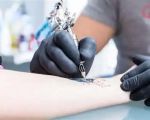Introduction to Opening a Tattoo Shop in North Carolina
Opening a tattoo shop can be a dream for many aspiring artists and entrepreneurs. But if you're in North Carolina and wondering, "Can tattoo shops open in NC?" the answer is yes, with specific regulations in place. North Carolina, like many other states, has its own set of laws to ensure the safety of both the artists and clients. These rules focus on hygiene, licensing, and compliance with health and safety standards. In this article, we will explore the key aspects of opening a tattoo shop in North Carolina, covering legal requirements, practical tips, and advice to help you get started.
1. Understanding Tattoo Regulations in North Carolina
Before opening a tattoo shop in North Carolina, it's essential to familiarize yourself with the state’s tattoo regulations. These regulations are designed to ensure a safe environment for both artists and clients. The North Carolina Department of Health and Human Services (NCDHHS) oversees tattoo establishments, and there are specific guidelines regarding sterilization procedures, sanitation, and the use of proper equipment. A tattoo artist must complete formal training and meet the state’s minimum health standards, including obtaining the necessary licenses and permits.
Moreover, North Carolina law prohibits anyone under the age of 18 from getting a tattoo, ensuring that minors are protected from potentially unsafe practices. Tattoo artists must also follow strict guidelines regarding the disposal of needles and other waste materials to avoid contamination or infection. Understanding these regulations is the first step in ensuring that your tattoo shop runs smoothly and legally.
2. Licensing and Permits Required for Tattoo Shops
To legally open a tattoo shop in North Carolina, you must apply for specific licenses and permits. These include a local business license, a health permit, and a tattoo establishment license issued by the NCDHHS. Additionally, all tattoo artists working in the shop must have an individual tattoo artist license, which is typically obtained after completing a certain number of hours in training under the supervision of a licensed professional.
When applying for these permits, you may need to provide evidence of your training, business location, and compliance with safety standards. For example, the health permit ensures that your tattoo shop meets hygiene standards, such as providing clean stations, sterilized equipment, and proper waste disposal systems. Each county in North Carolina may have slightly different requirements, so it's crucial to check with local authorities to ensure compliance.
3. Creating a Safe and Sanitary Tattoo Environment
One of the most critical aspects of opening a tattoo shop is maintaining a clean and sanitary environment. Not only does this protect your clients, but it also helps ensure that your shop complies with health regulations. Tattoo artists must use sterilized equipment, including needles, tubes, and gloves. After each session, it is essential to properly clean and disinfect all surfaces in the tattooing area.
Additionally, your tattoo shop must provide a safe space for clients, including clean restrooms, accessible handwashing stations, and a comfortable environment. You may want to invest in air filtration systems to help maintain a fresh atmosphere and reduce the risk of infections. Remember, a clean environment not only ensures compliance with regulations but also builds trust with your clients, enhancing your reputation as a professional establishment.
4. Insurance and Liability Protection
As a tattoo business owner in North Carolina, securing the right insurance coverage is essential for protecting yourself, your business, and your clients. You’ll need general liability insurance, which covers accidents or injuries that may occur on the premises. Additionally, you may want to consider professional liability insurance to protect against any potential claims related to the quality of your work or tattooing procedures.
Insurance is not only a wise investment but also a way to ensure that you can continue running your business smoothly in case of an unfortunate incident. Consult with an insurance expert to understand the types of coverage needed for your specific tattoo business and comply with any local insurance requirements.
5. Choosing the Right Location for Your Tattoo Shop
Choosing the right location is crucial to the success of your tattoo business. You want a location that is easily accessible, visible, and in an area with sufficient foot traffic. Popular areas such as downtown districts, near colleges, or in trendy neighborhoods can be ideal for attracting customers.
However, it's also important to consider zoning laws when selecting your location. Some areas may have restrictions on tattoo shops, so you’ll need to check with local authorities to ensure that your desired location is zoned for tattoo businesses. You should also factor in the rent costs, utilities, and the overall ambiance of the area, as these elements will influence the atmosphere of your shop and appeal to potential clients.
6. Marketing Your Tattoo Shop and Building a Clientele
Once you’ve navigated the legalities and set up your tattoo shop, the next challenge is attracting clients. Marketing plays a significant role in building a strong customer base. Start by creating an appealing website that showcases your work, provides information about your services, and includes contact details. Social media is another essential tool for promoting your business, allowing you to engage with potential clients and showcase your portfolio.
Word of mouth is incredibly powerful in the tattoo industry, so make sure you provide excellent service to each client, as satisfied customers will likely recommend your shop to others. Additionally, offering discounts, running promotions, or hosting tattoo-related events can help attract more customers and grow your business.
Conclusion: Starting a Successful Tattoo Business in North Carolina
Opening a tattoo shop in North Carolina is an exciting venture, but it requires careful planning, compliance with state regulations, and a focus on creating a safe, sanitary, and inviting environment for clients. From understanding local tattoo laws to securing the proper licenses and insurance, every step is crucial for running a successful and legal business.
If you are passionate about tattoo artistry and want to make your dream a reality, following these steps will help you navigate the process and open a tattoo shop that is both legal and thriving. Whether you are an experienced artist or just starting, establishing a solid foundation in compliance and business practices will set you up for long-term success in North Carolina.
SEO Title: Can Tattoo Shops Open in NC? Regulations, Licensing, and Tips for Success SEO Keywords: can tattoo shops open in NC, tattoo shop laws North Carolina, opening a tattoo shop in NC, tattoo licensing NC SEO Description: Learn everything you need to know about opening a tattoo shop in North Carolina. Understand the legal requirements, licenses, and regulations, and get tips for building a successful tattoo business.







